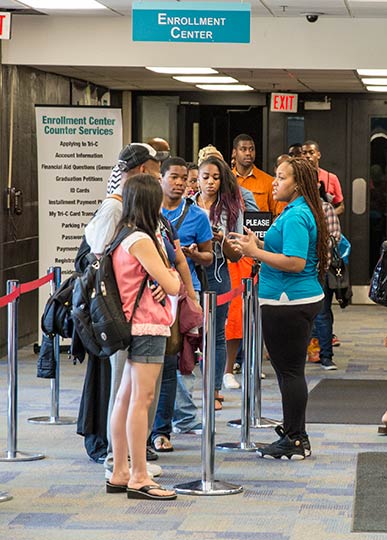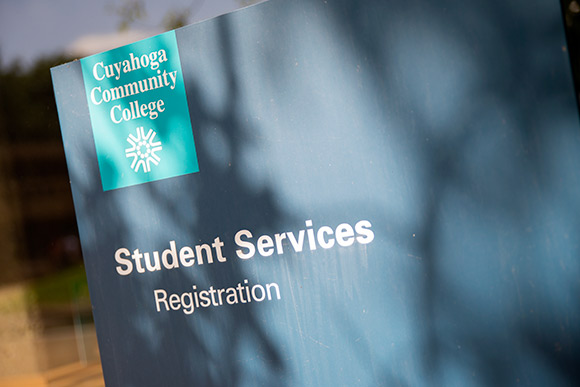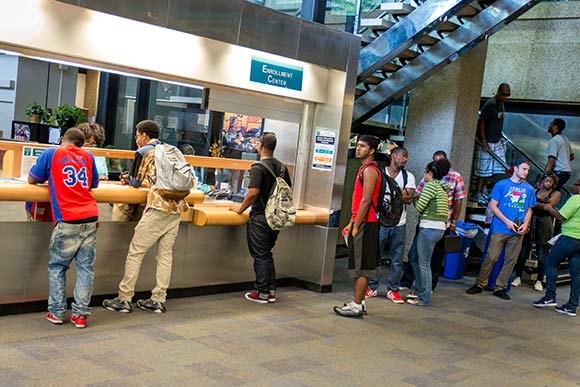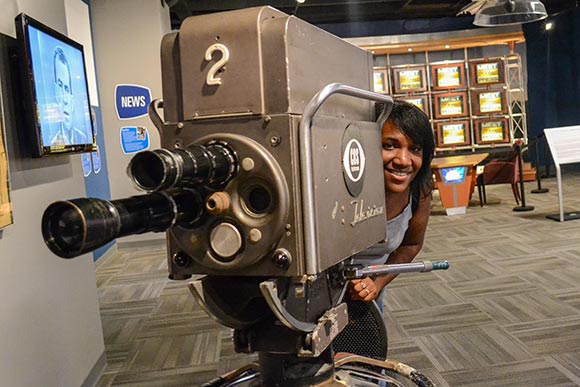planning ahead eases the transition from tri-c to bachelor's degree
Community college is a viable option for students seeking to save money while preparing to continue their studies at a four-year college or university, its advocates contend. However, many undergraduates make costly and time-consuming mistakes before even getting to the transfer process.
This potential nightmare can be avoided with careful planning done at the earliest stage of a student's academic career, says Karen Miller, vice president for access and completion at Cuyahoga Community College. Tri-C is not just streamlining this process to make transfer easier, it's promoting the importance of setting a direction the moment a student enters the institution.
"You want to have that conversation early," Miller says. "A student can waste time, credit hours and financial aid by getting on the wrong path."
Clearing the way
As an accredited public two-year school, Tri-C promotes itself as a pathway to the working world or a four-year university. Further clearing the road for its young charges is a more recent development, part of a school-wide overhaul of operations to actively engage students in their own learning and development.
Not all undergrads are mindful of one critically important fact, notes Miller: Even if a course they take at Tri-C transitions to a four-year school, those credits might not be applicable to the degree program they are pursuing. Tri-C has formal agreements with hundreds of Ohio-based partner colleges and universities on what classes will transfer, but those credits can only be obtained by following a prescribed program of study.
The community college stays abreast of the oft-changing transferability requirements at its partner schools. Bringing that knowledge to students makes them more proactive, Miller says. Tri-C recently opened a dedicated transition center at its Metropolitan Campus for new students expecting to transfer to a four-year school. Undergrads meet with a counselor, who helps them plan their academic path and links them to the partner institution of their choice.
Be ready
Journalism major Portia Booker prepared for her academic future well in advance -- and is glad she did. Booker, 22, transferred from Tri-C to Kent State University in 2013 with an eye toward the broadcast side of the medium.
Advice from transfer counselors, professors and the managing editor at her student newspaper was invaluable in showing her the proper steps to KSU's nationally ranked J-School, she says. Tri-C's connection to the university also revealed what classes she needed to take to make the jump.
"Transferring can be challenging if you don't know where to get help," says Booker. "It's always good to have people around who think you have potential."
Booker is on track to graduate in 2016, and hopes to take her diploma to TV news production or wrangle a job as a reporter on The Today Show. Tri-C gave her the resources, though it was up to her to use them.
"The more you put into something, the more you'll get out," she says.
Tri-C's new hands-on approach is the best way for students to avoid taking the wrong courses or excessive electives, says Miller. "Too often, students don't let us know up front what their intentions are," she says. "Many feel like they can do everything themselves."
A DIY attitude can lead to trouble if a student is not aware of a university's admission requirements and deadlines, Miller says. She also suggests choosing a transfer college as soon as possible, a move that can save a student tuition dollars as well as grief if the school of their choice does not take class credits from Tri-C.
Standards of how a university goes about accepting a transfer student can vary. Seemingly insignificant criteria like whether a community college goes by quarter or semester is taken into consideration when reviewing transcripts for transfer credit acceptance and application.
Tri-C recommends that students complete an associate degree prior to transition, as some bachelor's programs require an associate's prior to enrolling. Other universities ask transfer students to meet base admissions eligibility prerequisites, usually a minimum 2.0 grade point average while carrying between 60 and 64 credit hours.
About 35 to 40 percent of Tri-C's students transfer to a four-year institution. Hopeful transferees need to utilize the resources available to them so as to best avoid academic pitfalls.
"Getting them on the easiest, most direct path is our goal," Miller says.










